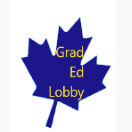What would change if Canadian grad student leaders asked, “How do you evaluate, update, improve, study, learn, contribute to knowledge and stay current in grad ed?” Perhaps deans and program heads are just waiting to say, “We never thought you’d ask. Now that you’ve asked, let’s fill this void…”
Grad students have very little information on how their university learns about its grad ed programs. How do grad programs make their programs better? , how do universities determine their research training programs fit the world of 21st century research? What process does the university use for program renewal?
The University of Toronto advertises the Canadian Graduate and Professional Student Satisfaction Survey by way of its performance evaluation. Really? Why isn’t the UTGSU graduate student leaders in other Canadian universities demanding better? The info gleaned in the CGPSS is too vague and aggregated to bring about renewal for one. For two, the survey aims more for reassuring information like comparisons. For three, the survey fails to address renewal of graduate education. How reassured do students feel about program evaluation if their program website hasn’t been updated for a decade?
The widespread use of CGPSS by Canadian and American grad schools just continues the well worn path of ignoring program evaluation for the purpose of change, learning and growth. After all prominent grad ed scholars like professor emeritus Dr. Debra Stewart still sound a wake up call to action for practitioners of grad ed to learn about it. One still overwhelming theme in the lit on grad ed is the utter indifference to the practices of grad ed by its practitioners.
Along with the poor excuse for program evaluation coming through the CGPSS, Canadian grad student leaders should notice how much their administrations take up recommendations for improvement and best practices. The Canadian Association of Graduate Studies (CAGS) made a spate of excellent recommendations in 2003, very few of which were implemented, even though every graduate school in the country belongs to CAGS. The lack of interest in program evaluation or development in graduate schools means that even today circa 2017 if grad schools adopted CAGS recommendations from 2003, grad ed would be advanced.
What if Canadian grad student leaders asked administrations to formulate goals by way of grad ed development. For example, every research student must also complete a three minute thesis with a poster. Such experiences are available now as tack-ons but the heart of research training programs remains unchanged. What if the department of grad studies required every research supervisor to participate in ongoing professional development to learn about better supervision practices or new ideas for assessment? What if every program had to convene a joint student and faculty committee to study and implement program renewal initiatives? Canadian grad student leaders must demand more than a student satisfaction survey to evaluate graduate programs.
The status quo and the CPGSS serve the university’s legendary complacency towards grad ed. Perhaps if grad student leaders demanded more, more would be done. Grad student leaders are supposed to function as a check on the university after all.
Buried deep in the highest degree given out by Canadian universities, graduate programs entwine a pinnacle of achievement with a nadir of attention to learning how better to surmount the pinnacle. Grad student leaders need to end the complacency and encourage ongoing, rigorous program renewal designed to make grad ed more responsive and forward looking. Grad student leaders could form partnerships with other union leaders to ask administrators to pilot projects to push past their passivity.
Student satisfaction surveys are no way to renew grad ed and move it forward. What if grad student leaders need to demanded better evaluation of programs and confronted complacency? The impetus to change needs student leadership to get the ball rolling.


